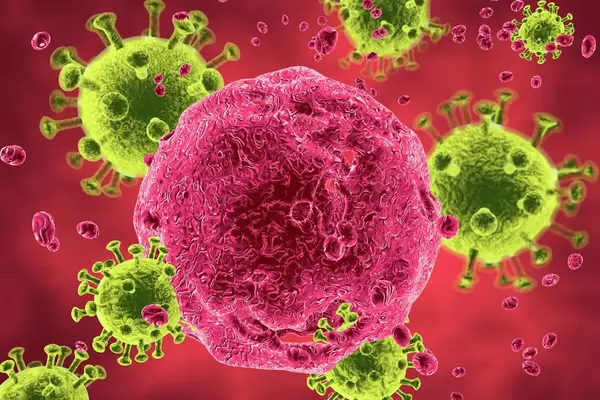Is asthma hereditary

If you tested your DNA with a personal genomics service like 23andMe, AncestryDNA, FamilyTreeDNA, MyHeritage or another testing company, you can learn more about your risk factors for hundreds of diseases. By clicking the button above ⬆️, you can upload your raw DNA data file and receive a personalized 250-page health report with research links that is the most comprehensive.
Asthma is a respiratory condition that involves inflammation of the airways and recurring episodes of breathing difficulties. These episodes, also known as asthma attacks, are caused by irritation of the inflamed airways. Allergic asthma, the most prevalent type of asthma, is triggered by allergens that prompt an allergic reaction when inhaled. Allergens are typically harmless substances that the immune system mistakenly perceives as harmful, such as pollen, dust, animal dander, and mold. The immune response results in asthma symptoms.
Roughly 50% of individuals impacted by asthma possess a genetic predisposition, which may include inherited genetic mutations or single nucleotide polymorphisms (SNPs) that heighten the likelihood of developing asthma, particularly when coupled with specific environmental factors.
Genes that are frequently associated with asthma are:
High levels of IgE, which are associated with early-onset asthma, are strongly linked to the gene ORMDL3 (ORMDL Sphingolipid Biosynthesis Regulator 3).
The αβ heterodimer of MHC class II, known as HLA-DQ(A1/B1), is present on antigen-presenting cells and plays a role in autoimmune disorders such as coeliac disease and type 1 diabetes mellitus. Additionally, mutations in this gene have been linked to the development of late-onset asthma.
Bronchial smooth muscle cells and lung fibroblasts exhibit robust expression of ADAM33 (A Disintegrin and Metalloproteinase 33), which plays a role in airway hyperresponsiveness and reduced lung function.
The gene Filaggrin plays a crucial role in preserving skin barriers, and its mutations are commonly associated with atopic dermatitis and ichthyosis Vulgaris. Such mutations not only heighten the likelihood of skin disorders but also exacerbate the risk of asthma and hay fever.
Some other genes that are often associated with this condition (not a complete list) are IL1RL1, which stands for Interleukin 1 Receptor Like 1 (receptor).
Interleukin-33 (cytokine) is also known as IL33.
SMAD3 is an intracellular signal transducer protein and a member of the SMAD family.
The receptor subunit known as IL2RB is the Interleukin 2 Receptor Subunit B.
SPINK5 is a multidomain serine protease inhibitor, also known as Serine Peptidase Inhibitor Kazal Type 5.
The receptor for Vitamin D is known as VDR (Vitamin D Receptor).
DPP10 is a membrane protein that is similar to dipeptidyl peptidase.
Ph.D. type zinc finger protein 11, also known as PHF11.
Human Leukocyte Antigen G (MHC) is also known as HLA-G.
Interleukin-13 (cytokine) is abbreviated as IL13.
The receptor known as GPR15 is a G protein-coupled receptor 15.
TLR2/4/6/9/10 are receptors known as Toll-Like Receptors 2, 4, 6, 9, and 10.
Numerous genes play a role in inflammation, immunity, and lung function. Any alterations or variations in these genes can impair their typical function, resulting in uncontrolled immune and inflammatory reactions (i.e., an overreaction), airway remodeling that reduces lung function, or heightened hyperresponsiveness.
Follow the link of the selected polymorphism to read a brief description of how the selected polymorphism affects Bronchial asthma and see a list of existing studies.
SNP polymorphisms related to the topic Bronchial asthma:
| rs7216389 | The ORMDL3 gene is linked to asthma, which is poorly controlled with current medications. |
| rs1800925 | Interleukin-13 SNP rs1800925 variation associated with asthma and allergic rhinitis. |
| rs1295686 | IL13 gene polymorphism modifies the effect of tobacco smoke exposure on persistent wheezing and asthma in childhood. |
| rs2070874 | Genetic predisposition to childhood allergies and asthma. |
| rs1042713 | Associated with asthma exacerbations regardless of treatment regimen. 1.3-fold increased risk that inhaler use in children may exacerbate asthma. |
| rs2280089 | ADAM33 gene polymorphism identified as associated with asthma and rhinitis in adults. |
| rs2280090 | ADAM33 gene polymorphism identified as associated with asthma and rhinitis in adults. |
| rs612709 | ADAM33 gene polymorphism identified as associated with asthma and rhinitis in adults. |
| rs1837253 | A variant of the estrogen receptor I (ESR1) gene is associated with anorexia nervosa and eating disorders. |
| rs16947078 | 8-fold risk of developing allergic asthma. |
| rs11650354 | 8-fold risk of developing allergic asthma. |
| rs4950928 | |
| rs1051931 | |
| rs1805018 | |
| rs7009110 | |
| rs4833095 | |
| rs62026376 | |
| rs1438673 | |
| rs17294280 | |
| rs72699186 | |
| rs10197862 | |
| rs6754459 | |
| rs20541 | |
| rs2066960 | |
| rs848 | |
| rs17218161 | |
| rs2473967 | |
| rs16929097 | |
| rs7927044 | |
| rs12570188 | |
| rs9815663 | |
| rs4658627 | |
| rs7328278 | |
| rs10521233 | |
| rs2303067 | |
| rs17334242 | |
| rs4986790 | |
| rs4986791 | |
| rs1801105 | |
| rs574174 | |
| rs44707 | |
| rs2787094 | |
| rs569108 | |
| rs324981 | |
| rs1154404 | |
| rs2074190 | |
| rs9910408 | |
| rs2240017 | |
| rs2241712 | |
| rs2278206 | |
| rs4378650 | |
| rs12603332 | |
| rs4794067 | |
| rs8067378 | |
| rs6591255 | |
| rs3024492 | |
| rs3024496 | |
| rs3802780 | |
| rs1978331 | |
| rs11569562 | |
| rs1446495 | |
| rs3918396 | |
| rs689465 | |
| rs2407992 | |
| rs320995 | |
| rs2251746 | |
| rs2427837 | |
| rs8069176 | |
| rs2305480 | |
| rs4795400 | |
| rs3741240 | |
| rs12422149 | |
| rs3804100 | |
| rs11650680 | |
| rs8193036 | |
| rs1420101 | |
| rs7740529 | |
| rs10402876 | |
| rs366510 | |
| rs1334710 | |
| rs4959389 | |
| rs977785 | |
| rs1800896 | |
| rs11558538 | |
About The Author
Li DaliLi Dali, a National Foundation for Outstanding Youth Fund recipient, is a researcher at the School of Life Sciences in East China Normal University. He earned his PhD in genetics from Hunan Normal University in 2007 and conducted collaborative research at Texas A&M University during his doctoral studies. Li Dali and his team have optimized and innovated gene editing technology, leading to the establishment of a world-class system for constructing gene editing disease models.


